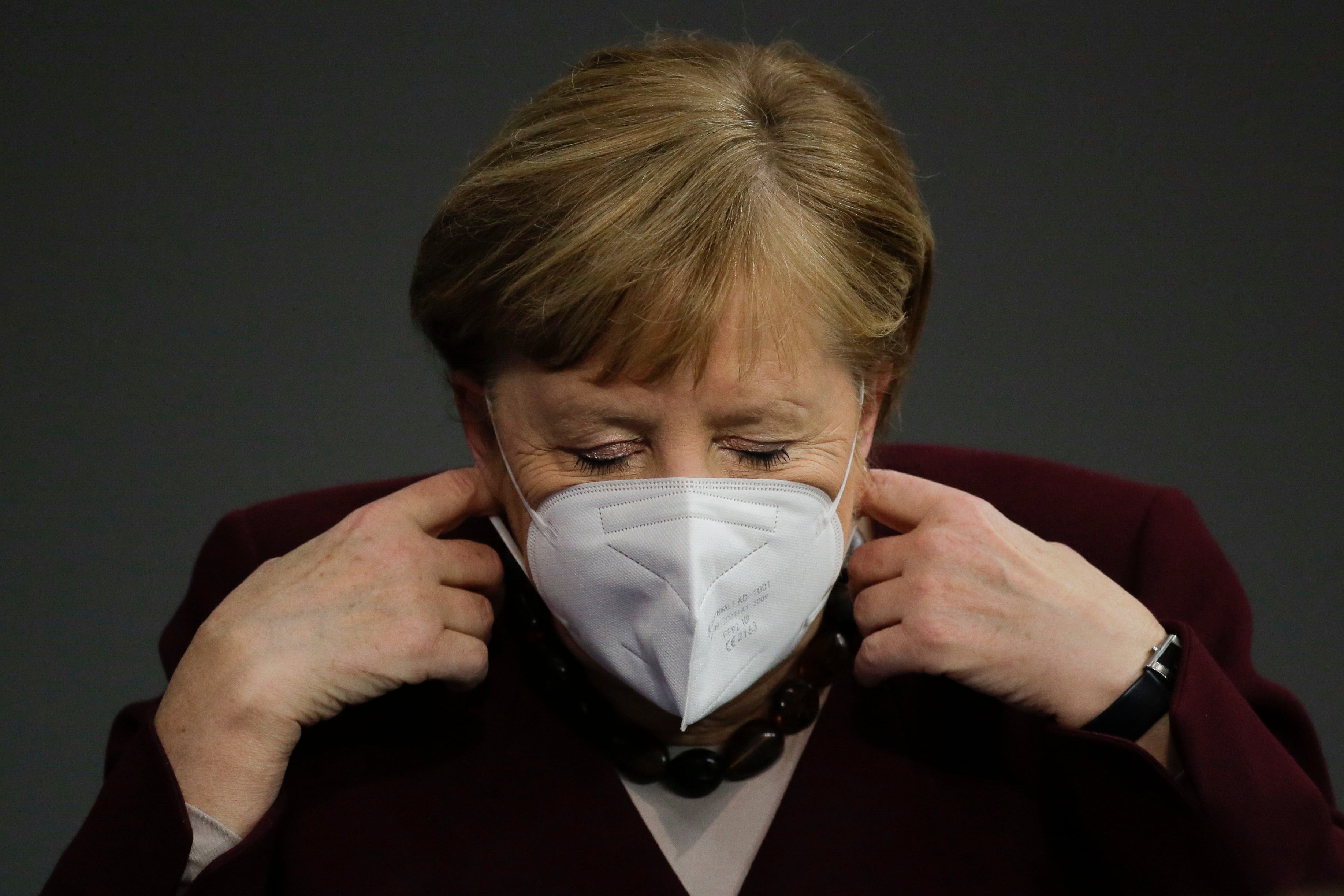Merkel urges patience as German virus restrictions extended
Chancellor Angela Merkel has urged Germans to remain patient with restrictions meant to slow the spread of the coronavirus, saying that with promising vaccines on the way, “there is light at the end of the tunnel.”

Your support helps us to tell the story
From reproductive rights to climate change to Big Tech, The Independent is on the ground when the story is developing. Whether it's investigating the financials of Elon Musk's pro-Trump PAC or producing our latest documentary, 'The A Word', which shines a light on the American women fighting for reproductive rights, we know how important it is to parse out the facts from the messaging.
At such a critical moment in US history, we need reporters on the ground. Your donation allows us to keep sending journalists to speak to both sides of the story.
The Independent is trusted by Americans across the entire political spectrum. And unlike many other quality news outlets, we choose not to lock Americans out of our reporting and analysis with paywalls. We believe quality journalism should be available to everyone, paid for by those who can afford it.
Your support makes all the difference.Chancellor Angela Merkel urged Germans to remain patient with restrictions meant to slow the spread of the coronavirus, saying Thursday that with promising vaccines on the way, “there is light at the end of the tunnel.”
Addressing parliament the day after agreeing with state governors on extending restrictions through at least Dec. 20, Merkel said officials had sought with the measures to keep life as normal as possible while protecting people from the virus and ensuring hospital systems aren't overwhelmed.
“In the fight against the pandemic it's not about health or economy, health or education, health or culture, health or social contacts, it's about all of these things,” she said. “To think of these things in opposition to one another is a common misunderstanding, but it's always about both."
Germany embarked on a so-called wave-breaker shutdown on Nov. 2, closing restaurants, bars, sports and leisure facilities but leaving schools, shops and hair salons open.
It was initially slated to last four weeks but Merkel and the country’s 16 state governors agreed late Wednesday to extend it through Dec. 20 with a goal of pushing the number of new coronavirus cases in each region below 50 per 100,000 inhabitants per week. It’s currently at 140 per 100,000, with some regions far higher.
The country hit the grim milestone Thursday of more than 15,000 deaths from the coronavirus and appeared likely to surpass 1 million infections on Friday, according to data from the Robert Koch Institute, the country's disease control center.
Germany, which has 83 million people, was credited with a relatively good performance in the first phase of the pandemic. It still has a lower death rate than several other European countries, and its current shutdown has been relatively mild.
The current restrictions have managed to stop the exponential rise of new cases, but they have stabilized at a high level, which authorities now want to try and bring down.
The government also agreed upon some additional restrictions Wednesday, including further limiting private gatherings, discouraging traditional New Year's Eve fireworks and banning some events entirely, expanding mask requirements and reducing the number of customers allowed into larger stores.
The government also plans around 17 billion euros ($20 billion) more in aid to compensate businesses hit by the shutdown, on top of 15 billion euros (around $17.9 billion) provided by federal authorities in November.
Merkel said with several promising vaccines nearing approval, possibly before Christmas, people had reason for optimism.
“That won't solve the problem immediately, but there is light at the end of the tunnel,” she said.
Merkel's chief of staff, Helge Braun, told RTL television that it was likely that some restrictions were likely to remain in place through March, as the vaccine was rolled out.
“The winter will be difficult,” Merkel told lawmakers. “But it will end.”
_____
Frank Jordans contributed to this story.